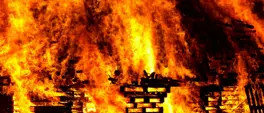United we shall stand! The story behind the anthem meant to unify a nation
Sara-Jayne Makwala King
10 July 2024 | 8:12Adopted as the national anthem in 1997, it features the five most widely spoken of South Africa's twelve official languages: Xhosa, Zulu, Sesotho, Afrikaans and English.
Lester Kiewit speaks to Jeanne Zaidel-Rudolph, a South African composer and pianist
Listen below.
So rousing was the rendition of the national anthem at Loftus Stadium on Saturday that it almost threatened to overshadow the Springboks 27–20 victory against Ireland.
Singer and actress Keabetswe ‘KB’ Motsilanyane moved the hearts of many South Africans with her soul-stirring version of Nkosi Sikelel' iAfrika. (Check out the video below.)
The anthem, as we know it now, was adopted post-apartheid in 1997 and is a hybrid of the 19th-century Xhosa hymn Nkosi Sikelel' iAfrika and the Afrikaans song Die Stem van Suid-Afrika.
The latter was used as the South African national anthem during apartheid.
The first half of today's anthem was arranged by Mzilikazi Khumalo, and the second by Jeanne Zaidel-Rudolph, who also wrote the final verse.
She says she was contacted in 1994 and asked to join an 'anthem committee'.
MUST WATCH WOW! 🤩
— Sky Sports Rugby Union (@SkySportsRugby) July 6, 2024
An INCREDIBLE moment as South Africa perform a passionate rendition of their national anthem 😅🇿🇦 pic.twitter.com/I5rUs3DRec
"Of course, President Mandela had already suggested that we should have a composite anthem - to put the two anthems together, Die Stem and Nkosi Sikelel' iAfrika."
- Jeanne Zaidel-Rudolph, South African composer and pianist
"It was my suggestion that Nkosi Sikelel' iAfrika comes first.This is politically correct, this is the way to do it, this is what we've been looking for all the years."
- Jeanne Zaidel-Rudolph, South African composer and pianist
Zaidel-Rudolph explains why the anthem modulates or 'changes key' in the latter half of the song.
"So the average person... can sing the anthem and it doesn't become too high vocally."
- Jeanne Zaidel-Rudolph, South African composer and pianist
The anthem features the five most widely spoken of South Africa's twelve official languages: Xhosa, Zulu, Sesotho, Afrikaans and English.
Did you know?
Did you know that there is a certain etiquette South Africans are expected to observe during a performance of the national anthem?
To convey due respect, citizens are asked to adhere to the following protocols:
- The National Anthem should be recited with appropriate respect.
- All should stand to attention with their hands at their sides while singing the National Anthem.
- Civilians should take their hats off as a sign of respect.
So, now you know!
ALSO READ:
WATCH: Goosebumps! Mzansi brought to tears by KB’s rendition of SA anthem
'I'm truly humbled': KB’s rendition of SA anthem brought 'united we shall stand' to life
Scroll up to the audio player to listen to the interview.
Get the whole picture 💡
Take a look at the topic timeline for all related articles.
















